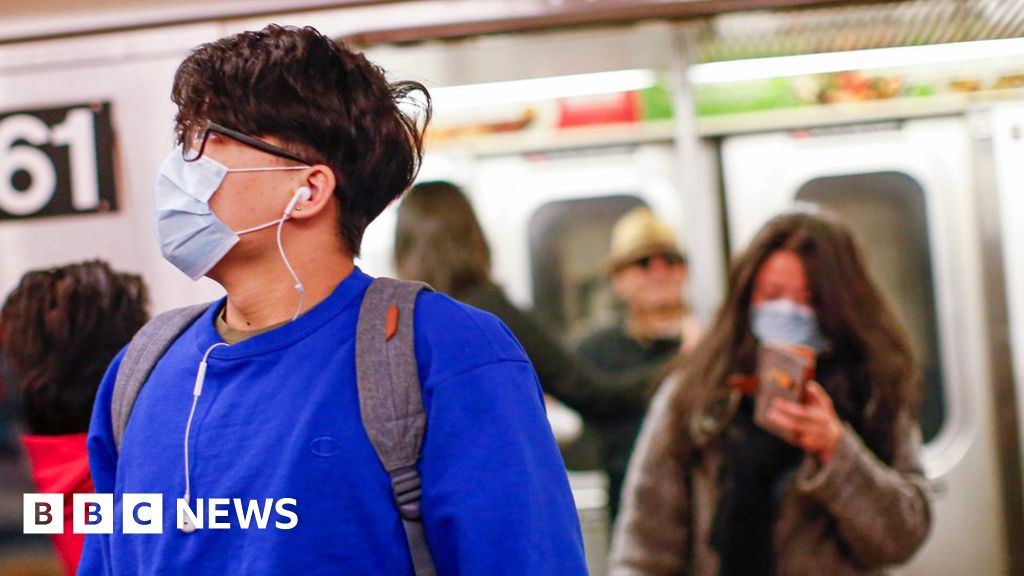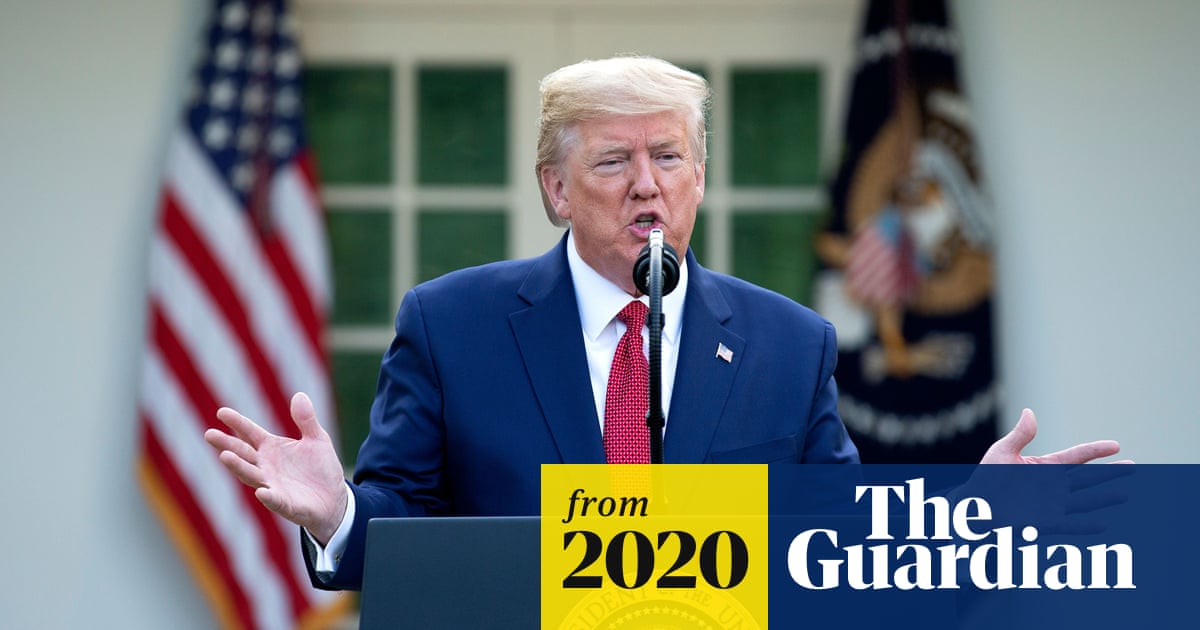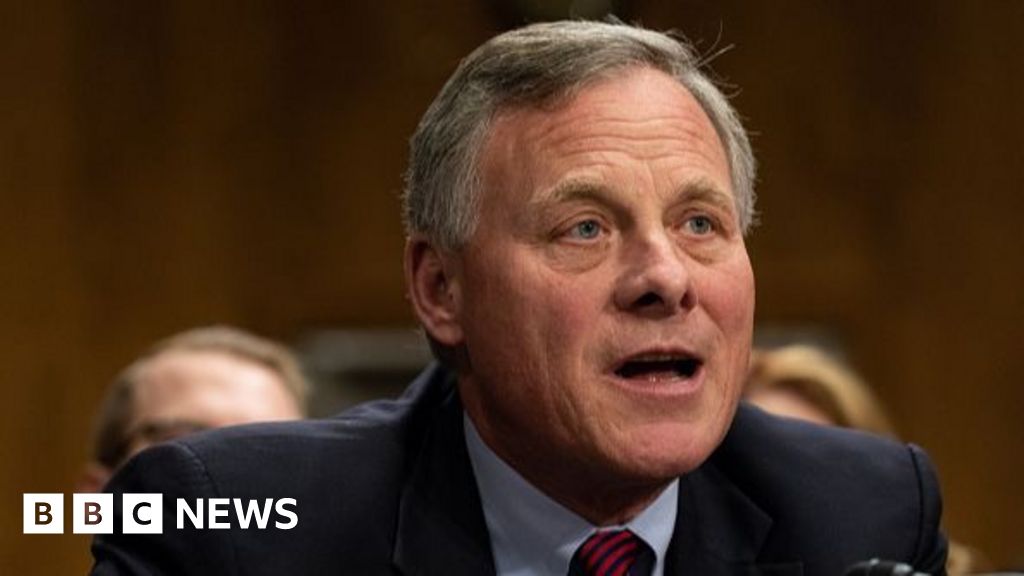Towered
Senior Member
Trump’s going to win in November. He’s looking like A hero to many DAF Americans.
DAF = "Dumb as F***"?
|
|
|
Trump’s going to win in November. He’s looking like A hero to many DAF Americans.
The admonition to “do as I say, not as I do” is the very definition of hypocrisy and to the surprise of absolutely no one, it may as well be the motto of Donald Trump and his extended family.
That is a logical conclusion one can draw from the news that The Washington Post reporter David Fahrenthold told MSNBC’s Joy Reid this morning in an appearance on her AM Joy program.
According to Fahrenthold, Jared Kushner — the scion of another major New York real estate family and Trump’s son-in-law — is holding the tenants of his lucrative real estate empire to a much different standard than he what he is seeking for his own family business during the economic fallout from the coronavirus crisis.
The revelation came as Reid was asking Fahrenthold about how the outbreak of the disease and its concomitant financial repercussions have affected Trump’s family.
“[Trump’s] adult children, they seem to derive most of their income and, you know, you’re the expert on this, from his businesses, things with his surname on them,” the MSNBC host said. “So in terms of their income, without these hotels, without these resorts and the money coming in from them and the foreign emoluments coming in, where do they get their money?”
“Well, the main source of income, if the hotels and restaurants are closed, is a couple office buildings that don’t even have their name on them, one in New York, one in San Francisco,” Fahrenthold replied. “Those produce a lot of cash. It will continue to produce it for a while just because it’s so hard to get out of leases,” the reporter said about the Trump organization.
“I’m not the world’s expert on Jared Kushner, but I have read that,” said Fahrenthold. “At the same time, the Kushner Company is asking for leniency from its lenders — there’s a retail space in Times Square that I’ve read they’re having trouble making the payments on. So they’re forcing others to make payments while trying to get out of it themselves.”
Hypocrisy thy name is Kushner, as well as Trump.
Hypocrisy has many aliases in Republican circles these days with GOP senators dumping their stocks on insider information about the seriousness of the then-upcoming pandemic while simultaneously reassuring their constituents that the disease was merely a Democratic hoax meant to harm the president politically.
The sudden national emergency can bring out the best in many Americans as they go out of tier way to help others — even with the simple act of following medical professionals’ advice to remain isolated from others until the threat of overwhelming our hospitals with infected patients is over.
It can also bring out the worst in people as hoarders, profiteers, and Republican politicians and their families all so amply demonstrate.
Jared Kushner’s crying mercy, but he don’t know the meaning of the word (apologies to Mose Allison.)
The tragic effects of our battle with the novel coronavirus are seemingly endless. But arguably the most mind-blowing is this: the very pandemic that threatens to infect and kill millions is simultaneously causing many to also lose their health coverage at their gravest time of need.
Here’s how: the virus has caused a public health crisis so severe that people have been forced to stay home, causing businesses to shutter and lay off workers. And with roughly half of Americans getting their health insurance from their employer, these layoffs mean not only losing their income but also their medical coverage. In other words, just as our need for medical care skyrockets in the face of a global pandemic, fewer will have health insurance or be able to afford it. According to one recent report, the cost of treatment for Covid-19 can run around $35,000. As the patient in the report exclaimed: “I was pretty sticker-shocked. I personally don’t know anybody who has that kind of money.”
So, how did we get to such a dire place? Many will sadly lose their jobs over the coming weeks – with one estimate projecting as many as 30%. And as they do, Americans are about to learn something horrifying: how irrational and irresponsible it is for so many to be dependent on employers for health insurance. Take it from me. I’m a former health insurance executive who once profited from this system. It’s time for it to stop.
America needs to finally get out of the business of linking health coverage to job status. Even in better times, this arrangement was a bad idea from a health perspective. Most Americans whose families depend on their employers for coverage are just a layoff away from being uninsured. And now, when many businesses are shutting down and considering layoffs, it’s a public health disaster. Across the country we’re seeing reports of layoffs in almost all industries. As we approach a global recession, some analysts suggest that a million or more US workers will lose their jobs in April alone. Consider what this means for health care in this country.
We’ve seen this before. During the last big recession, researchers at Cornell University found that 9.3 million Americans lost their health insurance between 2007 and 2009. Why? As people lost work, their employer-provided insurance went away. During this time, roughly six in 10 Americans who lost their jobs became uninsured. And this problem compounds itself. If the reason you lost your health insurance is that you no longer have steady employment, how are you now going to be able to afford monthly premiums for some other private health care plan? This problem becomes particularly acute when you consider that premiums for health plans sold on exchanges are projected to soar, as well, due to “unexpected Covid-19 costs”.
It’s worth noting that even in good times, the employer-based model fails to cover enough of us, with the number of Americans covered through an employer steadily dropping in general. Since 1999, the percentage of those with job-based coverage has declined by nine points. And it most certainly will drop like a rock in the coming weeks and months.
It’s now clear that this system cannot handle our current reality. With so many Americans sadly on the verge of unemployment, the number that will lose health coverage will be crushing. As we rebuild our country’s economic base and reimagine the roles various industries play in our new future, we must also begin a difficult conversation about health care. If we’re dependent on jobs in order to have it, a lot of us will be left out in the cold. And at a time in our nation’s history where more will need quality care than ever before, the human cost will simply be too much to bear.
Thirteen years ago, a group of U.S. public health officials came up with a plan to address what they regarded as one of the medical system’s crucial vulnerabilities: a shortage of ventilators.
The breathing-assistance machines tended to be bulky, expensive and limited in number. The plan was to build a large fleet of inexpensive portable devices to deploy in a flu pandemic or another crisis.
Money was budgeted. A federal contract was signed. Work got underway.
And then things suddenly veered off course. A multibillion-dollar maker of medical devices bought the small California company that had been hired to design the new machines. The project ultimately produced zero ventilators.
That failure delayed the development of an affordable ventilator by at least half a decade, depriving hospitals, states and the federal government of the ability to stock up. The federal government started over with another company in 2014, whose ventilator was approved only last year and whose products have not yet been delivered.
“We definitely saw the problem,” said Dr. Thomas R. Frieden, who ran the Centers for Disease Control and Prevention from 2009 to 2017. “We innovated to try and get a solution. We made really good progress, but it doesn’t appear to have resulted in the volume that we needed.”
The project — code-named Aura — came in the wake of a parade of near-miss pandemics: SARS, MERS, bird flu and swine flu.
Federal officials decided to re-evaluate their strategy for the next public health emergency. They considered vaccines, antiviral drugs, protective gear and ventilators, the last line of defense for patients suffering respiratory failure. The federal government’s Strategic National Stockpile had full-service ventilators in its warehouses, but not in the quantities that would be needed to combat a major pandemic.
In 2006, the Department of Health and Human Services established a new division, the Biomedical Advanced Research and Development Authority, with a mandate to prepare medical responses to chemical, biological and nuclear attacks, as well as infectious diseases.
In its first year in operation, the research agency considered how to expand the number of ventilators. It estimated that an additional 70,000 machines would be required in a moderate influenza pandemic.
The ventilators in the national stockpile were not ideal. In addition to being big and expensive, they required a lot of training to use. The research agency convened a panel of experts in November 2007 to devise a set of requirements for a new generation of mobile, easy-to-use ventilators.
In 2008, the government requested proposals from companies that were interested in designing and building the ventilators.
The goal was for the machines to be approved by regulators for mass development by 2010 or 2011, according to budget documents that the Department of Health and Human Services submitted to Congress in 2008. After that, the government would buy as many as 40,000 new ventilators and add them to the national stockpile.
The ventilators were to cost less than $3,000 each. The lower the price, the more machines the government would be able to buy.
Companies submitted bids for the Project Aura job. The research agency opted not to go with a large, established device maker. Instead it chose Newport Medical Instruments, a small outfit in Costa Mesa, Calif.
Newport, which was owned by a Japanese medical device company, only made ventilators. Being a small, nimble company, Newport executives said, would help it efficiently fulfill the government’s needs.
Ventilators at the time typically went for about $10,000 each, and getting the price down to $3,000 would be tough. But Newport’s executives bet they would be able to make up for any losses by selling the ventilators around the world.
“It would be very prestigious to be recognized as a supplier to the federal government,” said Richard Crawford, who was Newport’s head of research and development at the time. “We thought the international market would be strong, and there is where Newport would have a good profit on the product.”
Federal officials were pleased. In addition to replenishing the national stockpile, “we also thought they’d be so attractive that the commercial market would want to buy them, too,” said Nicole Lurie, who was then the assistant secretary for preparedness and response inside the Department of Health and Human Services. With luck, the new generation of ventilators would become ubiquitous, helping hospitals nationwide better prepare for a crisis.
The contract was officially awarded a few months after the H1N1 outbreak, which the C.D.C. estimated infected 60 million and killed 12,000 in the United States, began to taper off in 2010. The contract called for Newport to receive $6.1 million upfront, with the expectation that the government would pay millions more as it bought thousands of machines to fortify the stockpile.
Project Aura was Newport’s first job for the federal government. Things moved quickly and smoothly, employees and federal officials said in interviews.
Every three months, officials with the biomedical research agency would visit Newport’s headquarters. Mr. Crawford submitted monthly reports detailing the company’s spending and progress.
The federal officials “would check everything,” he said. “If we said we were buying equipment, they would want to know what it was used for. There were scheduled visits, scheduled requirements and deliverables each month.”
In 2011, Newport shipped three working prototypes from the company’s California plant to Washington for federal officials to review.
Dr. Frieden, who ran the C.D.C. at the time, got a demonstration in a small conference room attached to his office. “I got all excited,” he said. “It was a multiyear effort that had resulted in something that was going to be really useful.”
In April 2012, a senior Health and Human Services official testified before Congress that the program was “on schedule to file for market approval in September 2013.” After that, the machines would go into production.
Newport executives and government officials working on the ventilator contract said they immediately noticed a change when Covidien took over. Developing inexpensive portable ventilators no longer seemed like a top priority.
Newport applied in June 2012 for clearance from the Food and Drug Administration to market the device, but two former federal officials said Covidien had demanded additional funding and a higher sales price for the ventilators. The government gave the company an additional $1.4 million, a drop in the bucket for a company Covidien’s size.
Government officials and executives at rival ventilator companies said they suspected that Covidien had acquired Newport to prevent it from building a cheaper product that would undermine Covidien’s profits from its existing ventilator business.
Some Newport executives who worked on the project were reassigned to other roles. Others decided to leave the company.
“Up until the time the company sold, I was really happy and excited about the project,” said Hong-Lin Du, Newport’s president at the time of its sale. “Then I was assigned to a different job.”
Robert J. White, president of the minimally invasive therapies group at Medtronic who worked at Covidien during the Newport acquisition, initially said he had no recollection of the Project Aura contract. A Medtronic spokeswoman later said that Mr. White was under the impression that the contract had been winding down before Covidien bought Newport.
It wasn’t until last July that the F.D.A. signed off on the new Philips ventilator, the Trilogy Evo. The government ordered 10,000 units in December, setting a delivery date in mid-2020.
As the extent of the spread of the new coronavirus in the United States became clear, Dr. Anthony S. Fauci, director of the National Institute of Allergy and Infectious Diseases, revealed on March 15 that the stockpile had 12,700 ventilators ready to deploy. The government has since sped up maintenance to increase the number available to 16,660 — still fewer than a quarter of what officials years earlier had estimated would be required in a moderate flu pandemic.
Last week, the Health and Human Services Department contacted ventilator makers to see how soon they could produce thousands of machines. And it began pressing Philips to speed up its planned shipments.
The stockpile is “still awaiting delivery of the Trilogy Evo,” a Health and Human Services spokeswoman said. “We do not currently have any in inventory, though we are expecting them soon.”


Whoever is elected president in this year's election should push free universal health care forward across the United States.
The United States had to learn the hard way.
Agreed but, as noted very well in this article from the Economist, it has been branded poorly. `Socialised Medicine`sounds like the communists are en route!They will not.
Right now, millions of Americans being laid off and thus losing their employer-funded health insurance are hopefully beginning to look around the world at what could be possible for government run health care.Agreed but, as noted very well in this article from the Economist, it has been branded poorly. `Socialised Medicine`sounds like the communists are en route!

 www.vox.com
www.vox.com
Right now, millions of Americans being laid off and thus losing their employer-funded health insurance are hopefully beginning to look around the world at what could be possible for government run health care.

It would take well over a million deaths from COVID-19 in the United States to convince at least two-thirds of the American population that free universal health care is the way to go.Nah - Personal greed and selfishness are far too entrenched in American society. Their society will not learn, even after a pandemic.




